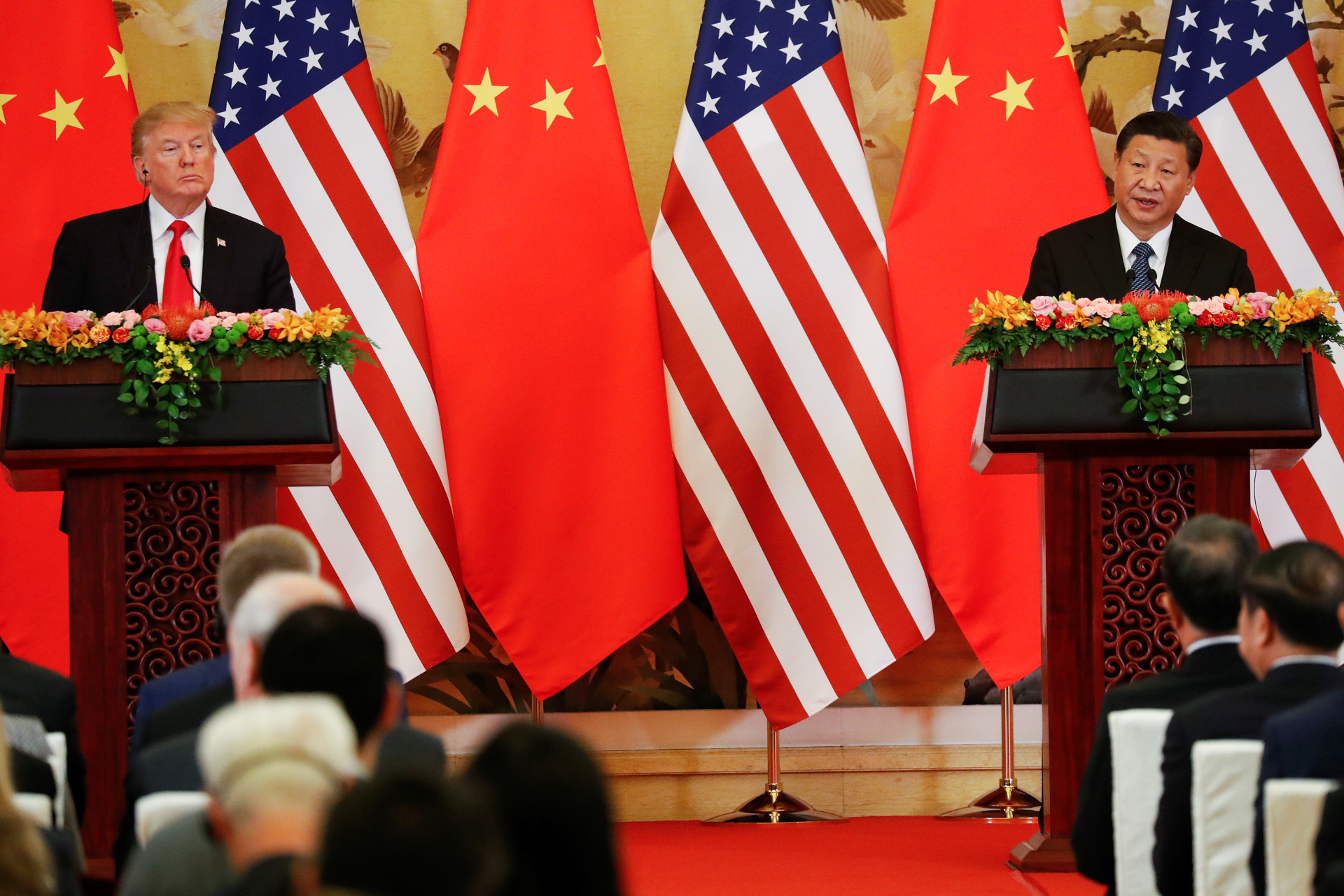Managing U.S.-China Relations in an Era of Peer Competition
U.S. competition with China continues to intensify, but rather than adopting a strategy of containment, the United States should respond by reinforcing its relationships with allies and leveraging China’s desire for stability to discourage disruptive behavior.

By experts and staff
- Published
By
- Patricia M. KimStanton Nuclear Security Fellow
According to the latest U.S. National Security Strategy and National Defense Strategy, China is a revisionist power and strategic competitor that ranks among the top three challenges the United States faces today. Beijing’s doubling down on authoritarianism at home, coupled with its growing power in the international arena, have raised questions about whether traditional U.S. policies toward China have failed and whether a new strategy is in order.
We can expect U.S. competition with China to intensify as Beijing continues to strengthen its military and technological capabilities, extend its economic reach, assert its territorial claims, and promote its own political model and values. Managing this conflict, however, does not necessitate a shift to pure containment. Rather it requires reinforcing the United States’ comparative advantages, and enhancing a China strategy that has historically combined elements of both balancing and engagement. Washington should redouble its efforts to work with allies and partners when opposing Beijing’s inflammatory actions, and leverage Chinese leaders’ fundamental desire for stability in order to disincentivize the pursuit of destabilizing policies and encourage the use of China’s newfound power in constructive ways.
Rally Allies to Collectively Check Beijing’s Worst Impulses
One of the greatest comparative advantages the United States has is its wealth of alliances and security partnerships. The United States should rally its partners and allies to speak in unison when checking China’s worst impulses—from the militarization of disputed territories in the South China Sea to its coercive economic behavior.
China’s government, unlike those of states like North Korea or Syria, cares about its international image, as well as its relationship with its neighbors. China has benefited enormously since fully integrating into the international system and desires to project itself as a global leader. Given these realities, collective backlash and condemnation will not be casually dismissed by Beijing and can drive Chinese leaders to reassess their policies.
Allies and partners can only be rallied, however, when the United States maintains strong relationships with them. In recent months the Trump administration has needlessly alienated many U.S. allies with brash words and policies. To maintain and even strengthen its alliances, the United States should strive to resolve disagreements with allies discreetly and in a manner that does not undermine the credibility of its commitments.
Managing this conflict, however, does not necessitate a shift to pure containment.
In addition, the United States should advance a positive and comprehensive agenda in East Asia. Many U.S. allies and partners in the region do not want to be used as mere pawns in Washington’s efforts to balance against Beijing, given their economic interdependence with and geographic proximity to China. U.S. leaders should think boldly about what proactive measures they can take, such as joining the Trans-Pacific Partnership, to signal a constructive U.S. presence in East Asia, and to reinforce the notion that there are wide-ranging benefits to cooperating with the United States.
Leverage China’s Desire for Stability
The United States should also leverage Beijing’s desire for stability to discourage its disruptive behavior, and to encourage its active participation in tackling global challenges. Chinese leaders understand that their ambitious goals to transform China into a world-class power cannot be achieved if their neighborhood is beset with chaos and instability due to a war, for instance, on the Korean Peninsula or in the South China Sea.
Washington should signal to Beijing that attempts to violently change the status quo or restrict U.S. maneuverability in the East Asian region will come at a great cost and set it back in its many ambitions at home and abroad. At the same time, U.S. leaders should also reassure their Chinese counterparts that the United States does not seek to contain China or prevent its rise, and that the two countries have more to gain by steadily working through bilateral issues and cooperating to address common global threats.
Finally, rather than engaging in transactional bargains, U.S. leaders should consistently communicate to their Chinese counterparts that Beijing should refrain from provocative behavior—such as blocking sea lanes—and that it should cooperate to solve global challenges—such as the North Korean nuclear crisis—not as a favor to Washington, but because doing so is ultimately in China’s long-term strategic interests.